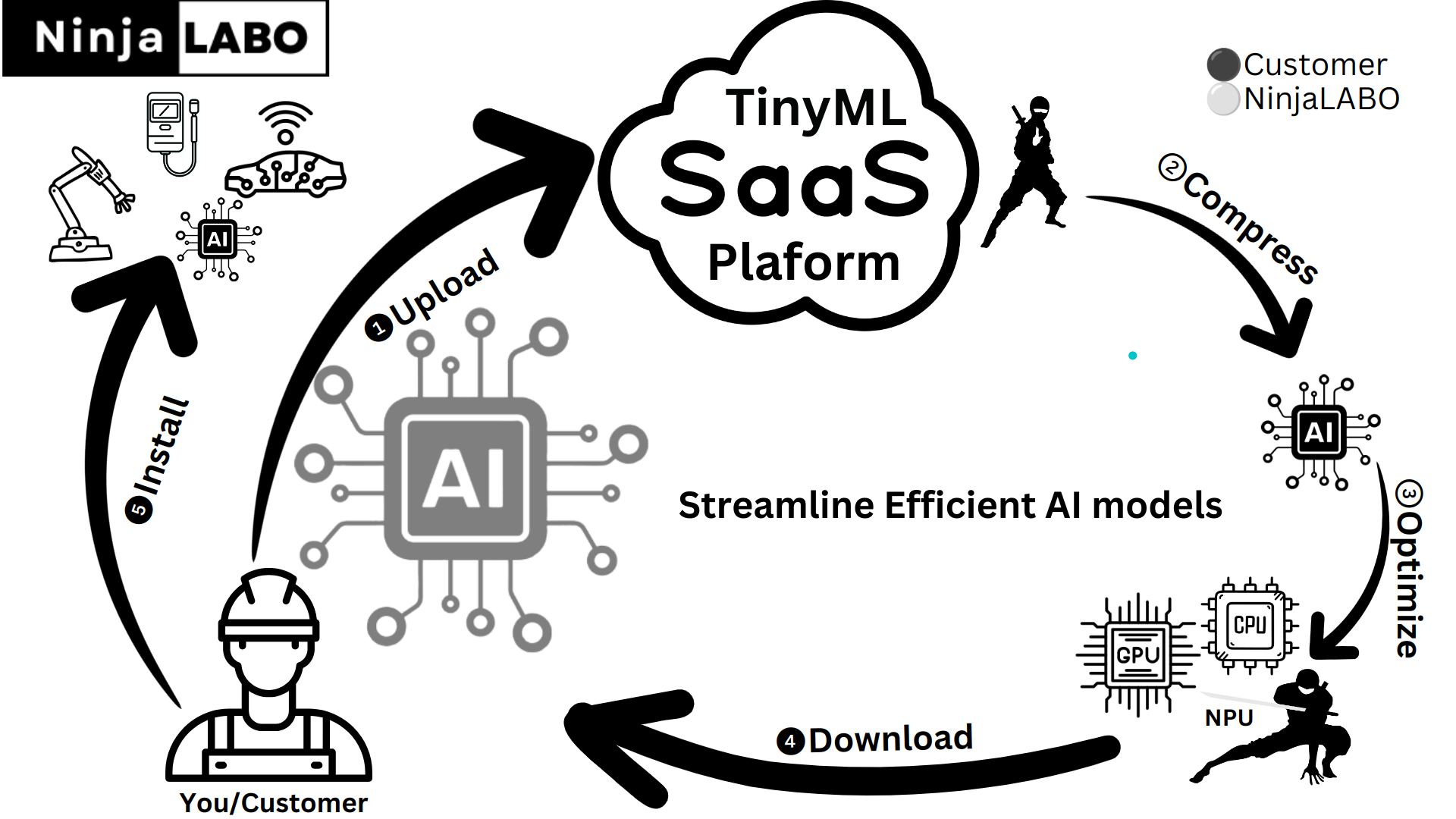AI compression SaaS
AI Compression as-a-Service: Revolutionizing Edge Computing
It has been nearly five years since I first wrote about TinyML and TinyML as-a-Service (TinyMLaaS) on the Ericsson blog.

In the rapidly evolving landscape of artificial intelligence (AI), efficiency and resource optimization are paramount. AI Compression as-a-Service (ACaaS) and TinyML as-a-Service (TinyMLaaS) emerge as transformative solutions that address the growing demand for deploying AI on resource-constrained devices. These services offer scalable, cost-effective, and high-performance AI capabilities, enabling a new wave of innovation in edge computing.
The Need for AI Compression
AI models, especially deep learning networks, have become increasingly complex and resource-intensive. Traditional deployment of these models on edge devices, such as smartphones, IoT sensors, and embedded systems, poses significant challenges due to limited computational power, memory, and energy resources. AI compression techniques, including model pruning, quantization, and knowledge distillation, aim to reduce the size and computational requirements of AI models without significantly compromising their performance.
Benefits of AI Compression as-a-Service
- Resource Optimization: ACaaS allows businesses to deploy AI models on edge devices with constrained resources, ensuring efficient utilization of hardware capabilities.
- Scalability: By leveraging cloud-based AI compression services, organizations can scale their AI deployments seamlessly, catering to diverse applications and devices.
- Cost-Effectiveness: Reduced model sizes and lower computational demands translate to cost savings in terms of hardware investment and energy consumption.
- Faster Inference: Compressed models enable faster inference times, critical for real-time applications such as autonomous vehicles, surveillance, and industrial automation.
- Enhanced Security: Processing data locally on edge devices minimizes data transfer to the cloud, enhancing data privacy and security.
TinyML as-a-Service: Empowering the Internet of Things
TinyMLaaS extends the concept of AI compression to the domain of microcontrollers and other ultra-low-power devices. By providing pre-trained, compressed AI models and tools for deploying them on TinyML platforms, this service empowers developers to create intelligent applications for the Internet of Things (IoT).
Key Features of TinyMLaaS
- Pre-trained Models: Access to a library of pre-trained, optimized models for various applications, from anomaly detection to image recognition.
- Deployment Tools: Comprehensive toolchains for converting, optimizing, and deploying models on TinyML hardware, simplifying the development process.
- Custom Solutions: Tailored AI solutions for specific use cases, ensuring optimal performance and efficiency.
- Seamless Integration: Easy integration with existing IoT ecosystems, enabling rapid deployment and scaling of intelligent applications.
Applications and Use Cases
- Smart Home Devices: Enhancing the capabilities of home automation systems with intelligent voice assistants, security cameras, and energy management solutions.
- Industrial IoT: Enabling predictive maintenance, quality control, and automation in manufacturing and logistics.
- Healthcare: Providing real-time monitoring and diagnostics through wearable devices and smart medical equipment.
- Agriculture: Facilitating precision farming with AI-powered sensors for soil health, weather conditions, and crop monitoring.
Conclusion
AI Compression as-a-Service and TinyML as-a-Service represent the next frontier in AI deployment, bridging the gap between advanced AI capabilities and resource-constrained edge devices. By offering scalable, efficient, and cost-effective solutions, these services empower a wide range of industries to harness the power of AI, driving innovation and transforming the way we interact with technology.
As the demand for edge computing continues to grow, ACaaS and TinyMLaaS will play a crucial role in shaping the future of AI, making intelligent applications more accessible and ubiquitous than ever before.